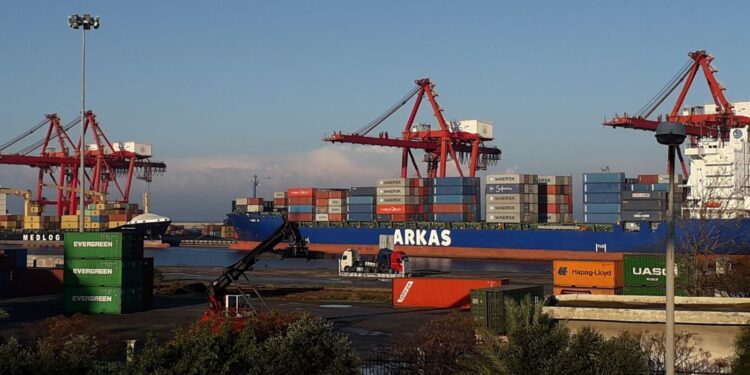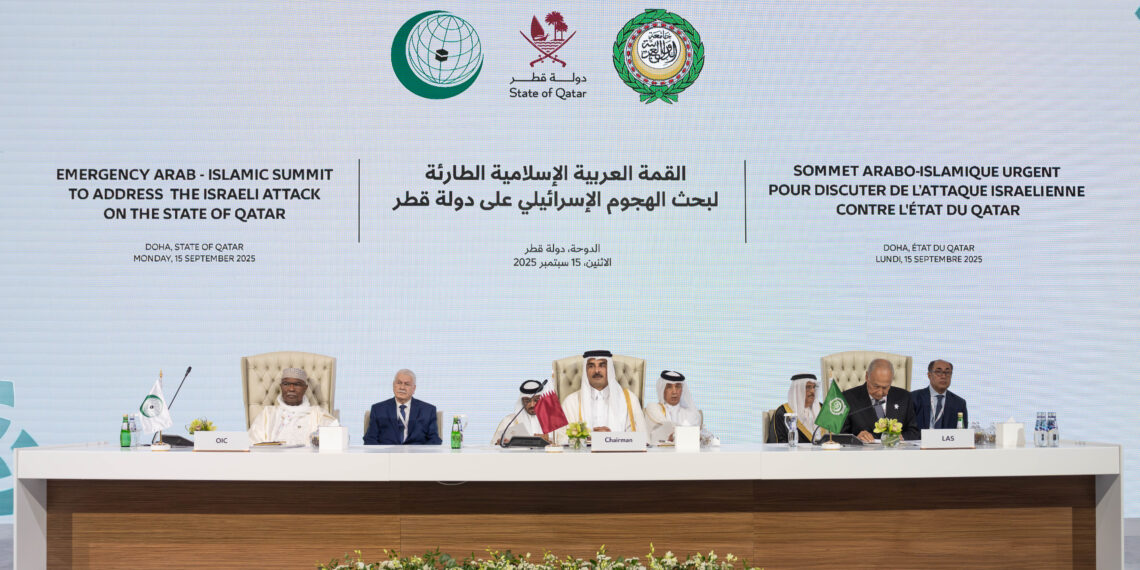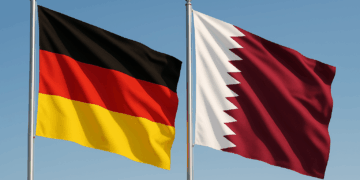In a move to bolster Syria’s economy and develop its port infrastructure, Syrian authorities announced on Thursday the signing of a 30-year investment contract with French company CMA CGM to modernize and operate Latakia Port, the country’s largest port on the Mediterranean. The agreement was signed at the People’s Palace in Damascus, in the presence of Syrian President Ahmed Al-Sharaa, government representatives, and CMA CGM officials. Described as the first international partnership of this scale since Syria’s political changes in December 2024, the deal marks a significant milestone.
CMA CGM’s Regional Director, Joseph Daqaq, stated that the contract aims to transform Latakia Port into an advanced maritime hub capable of handling larger vessels and expanding its logistical capacity. “We are pleased to announce the signing of a 30-year investment and management contract for Latakia Port, committing to its modernization, expansion, and deepening to accommodate larger ships and increasing cargo volumes in the coming years,” he said.
The Director of Latakia Port, Ahmed Mustafa, clarified that the contract entails a total investment of €230 million, with €30 million allocated for the first year. The project includes constructing a new quay over four years, valued at €200 million, with international-standard specifications, including a length of 1.5 kilometers and a depth of 17 meters, enabling the port to handle large vessels previously unable to dock.
Mustafa noted that the new quay will significantly enhance the port’s container terminal, featuring modern infrastructure to improve operational performance, streamline handling and storage, and facilitate container flow to and from Syria.
This contract marks the first international investment to develop Syria’s maritime infrastructure following a period of economic and political isolation. Economic observers view the agreement as the start of a deliberate economic opening aimed at attracting foreign investment to rehabilitate vital national facilities.
Regarding operational revenues, Mustafa explained that 60% will go to the Syrian state and 40% to CMA CGM, with the potential for an upward adjustment in the state’s favor based on increased container traffic in the future.
The agreement follows prolonged negotiations that began in February, when the General Authority for Land and Maritime Ports met with CMA CGM to settle previous obligations tied to a 2009 contract from the era of former President Bashar al-Assad. CMA CGM had managed the port’s container terminal for over 15 years before this new contract was signed with updated terms and operational mechanisms.
Experts believe that modernizing Latakia Port will enhance Syria’s maritime trade efficiency, reduce reliance on neighboring countries’ ports, create new job opportunities in logistics and maritime sectors, and pave the way for further investments in transport and foreign trade infrastructure.







